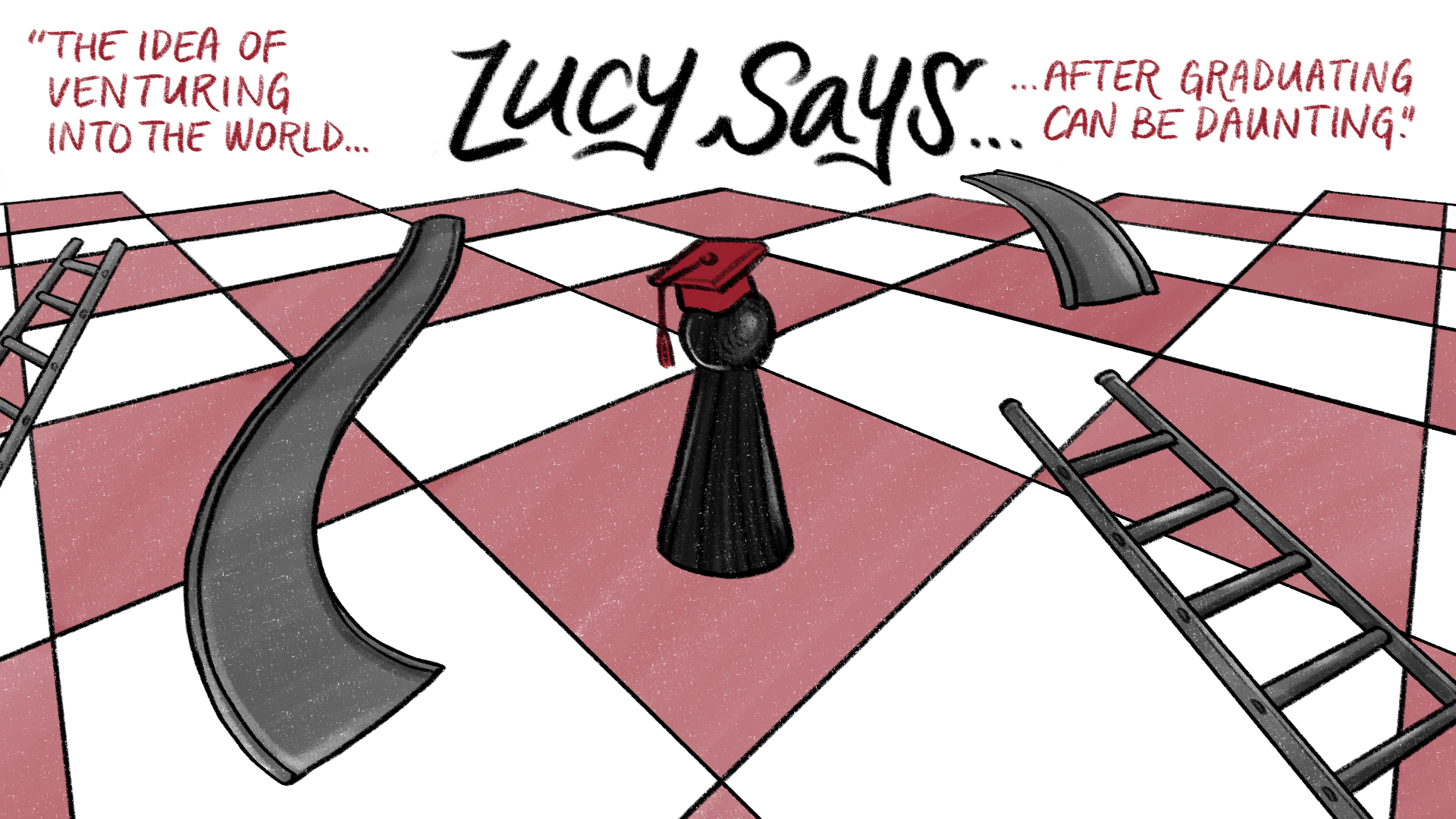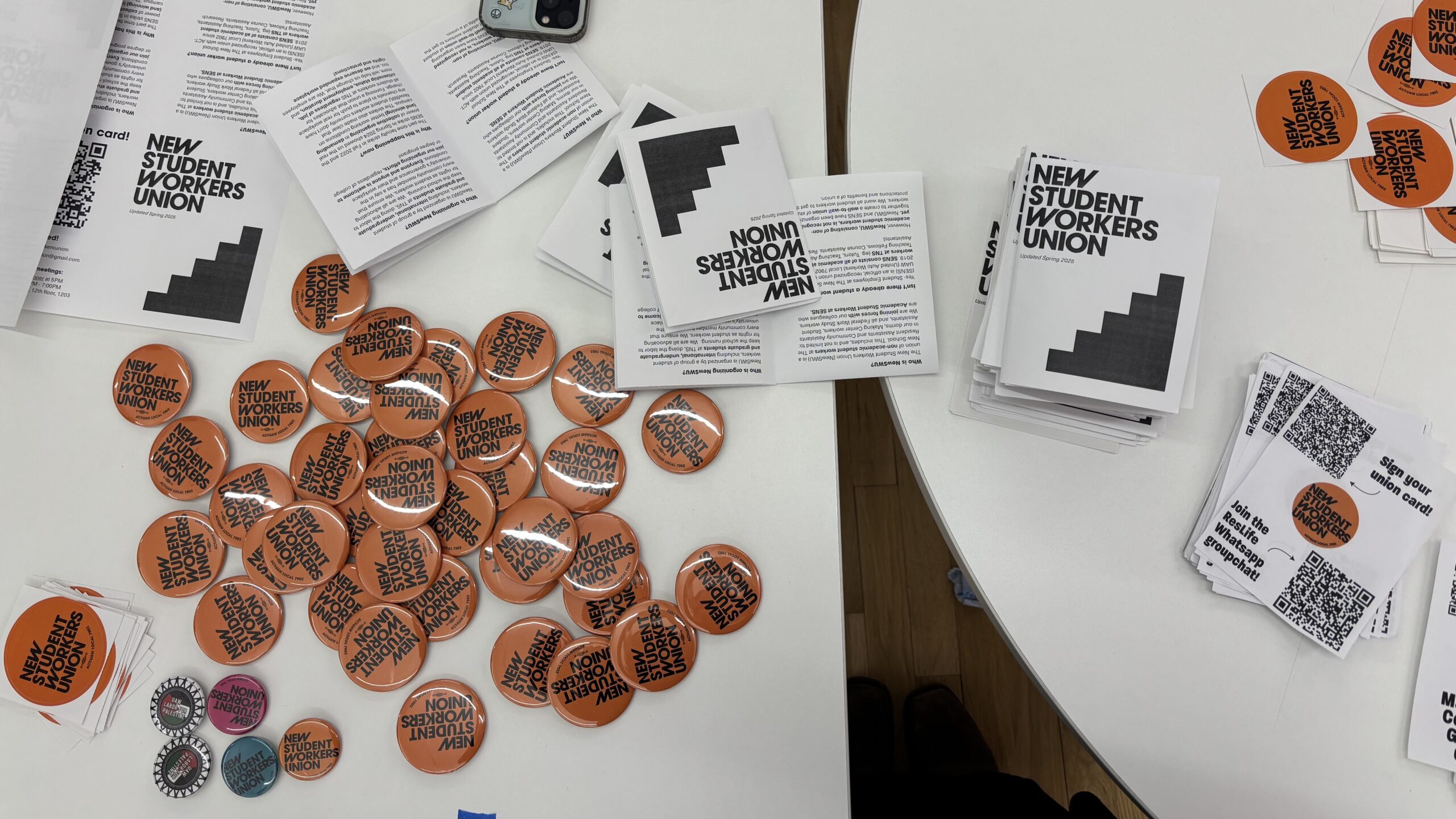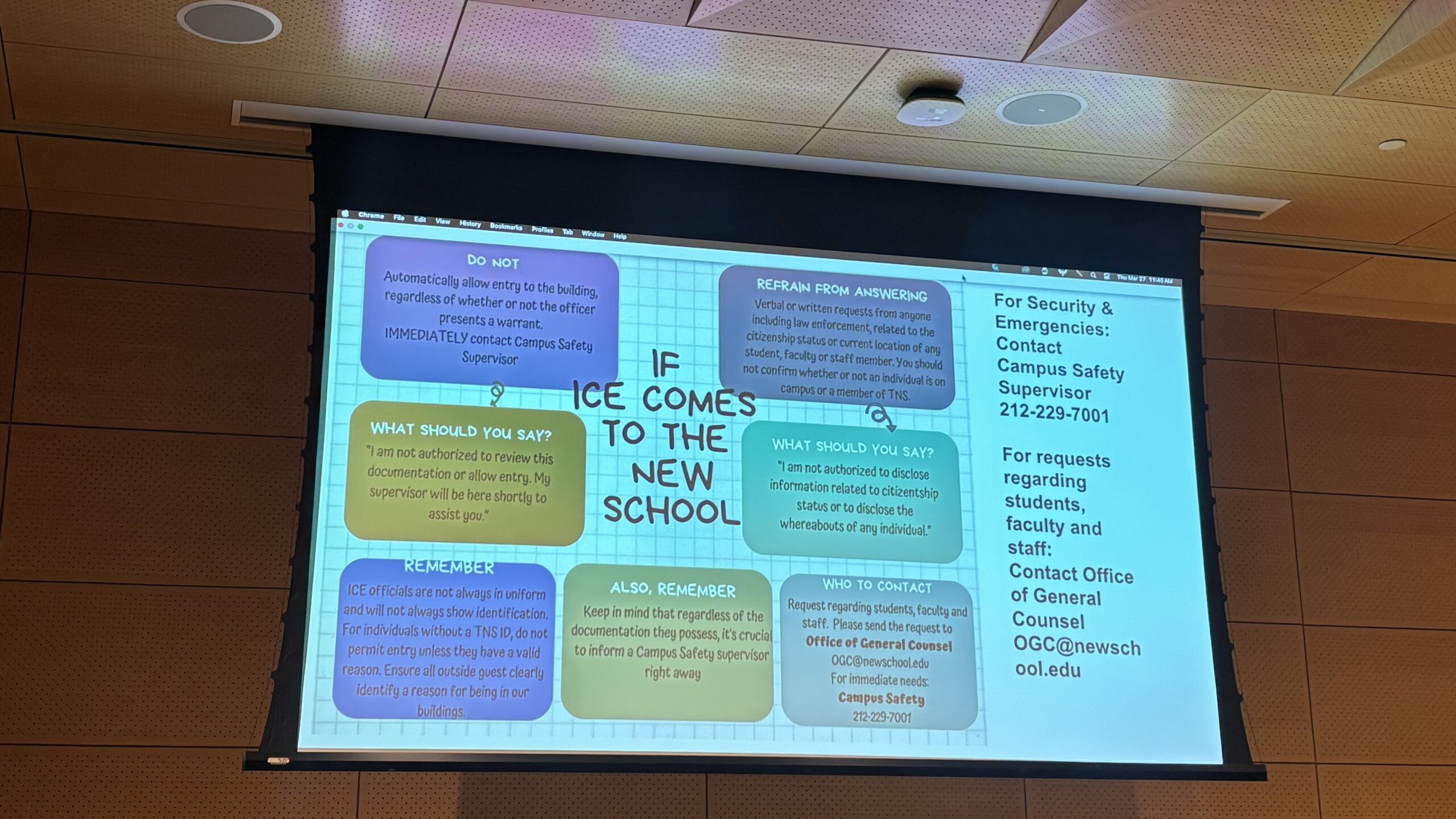Love, Lucy is the New School Free Press’ weekly advice column, where writers anonymously share thoughtfully researched solutions to your questions about life. Send submissions through Love, Lucy’s official Google Form, and you might hear back from Lucy herself.
Dear Lucy,
The thought of getting a full-time job after graduation is freaking me out. Help!
From,
Anxious Grad
Dear Anxious Grad,
The idea of venturing into the world after graduating can be daunting, especially if academia is all you’re used to. However, it does not have to be as scary as it seems. Despite what you may think, I believe that you do not have to secure a full-time job immediately after graduation. There are plenty of other options like grad school, an internship, and so much more. But if you are determined to work full-time or need to for financial reasons, I have several tips to help you throughout your job search.
First, consider what you’re looking for in a job or career. Your major and experience will help point you in the right direction, but there are many other factors to consider. Do you want to have a standard office job? Do you want to have creative freedom over your work? Do you want a fat paycheck? What kind of boss or coworkers do you want to have? These are the things one should consider when applying for jobs, especially full-time ones where you plan on staying for a while.
Once you’ve got some idea about what you want to do, start applying for jobs. The New School switched over to Handshake from HireNew in late August, so I recommend checking that out if you haven’t already. Handshake is a job board site like LinkedIn or Indeed. Through TNS, you can discover jobs and internships, as well as access the TNS career services.
Since you are just graduating, you’ll need to apply for internships or entry-level jobs requiring little experience in the field of your choice. It is also important to apply to positions that match up with your experience. Bonus points if you tailor your résumé and cover letter to reflect the qualifications of each job you apply to!
Maybe you’re wondering, “But Lucy, what do I do if I don’t have a lot of experience?” Your best bet would be to apply for internships, as Handshake suggests. “In 2012, a survey revealed that 60% of interns were offered a job after their paid internship. Conversely, only 36% of non-interning college graduates received an offer.”
Now, I am not going to sugarcoat how difficult job hunting is, especially in New York City. As stated in this Forbes article, “The job market is extremely competitive.” The competition is a result of a larger number of college graduates as well as unrealistic expectations from employers for entry-level positions, according to the article. In addition to the prevalent competition, the aftereffects of the global pandemic, as the article suggests, has made recent grads unprepared to face the real world. However, that shouldn’t discourage you from putting yourself out there professionally.
Here are my tips for navigating the job search:
- Network
If you haven’t already, create a LinkedIn profile and sign up for career fairs, summits, and events that are both on and off campus. The New School has various career-oriented events that you can find either on the events website or on NarwhalNation. Be sure to bring an updated résumé to these events and pitch yourself to recruiters. A good pitch is a simple 30-second introduction that tells recruiters who you are, what your career goals are, and what skills you bring to the table.
- Tailor your application
While it seems unnecessary (and time-consuming) to tailor your résumé for every job application, you should at least update it from time to time. An article from UC Davis suggests using strong verbs in your résumé to describe your previous responsibilities. Another suggestion would be to create a master résumé where you list out all of your work experience. Then, narrow that information down to a one-page résumé or CV, depending on what the employer asks for. UC Davis also recommends having a “headline or professional statement” at the top of your résumé that highlights “what you do and why or personal characteristics so employers can learn more about you.”
As for your cover letter, UC Berkeley says to mirror the job description, which just means taking the language and skills that are listed in the description and paraphrasing them in your cover letter. “Employers either use AI technology (ATS) or simply skim through these documents to find key phrases,” so utilizing their language will make you stand out.
- Prepare for interviews
Both UC Davis and UC Berkeley recommend preparing for interviews. “A common method you can use is STAR — Situation, Task, Action, and Result — which allows you to format easy-to-follow responses,” according to UC Davis. Using this method, make “a connection between your experiences and the program or job you’re applying to.” In other words, explain a situation, what your tasks or responsibilities were in that situation, how you addressed it, and the result of your actions. The interviewer will be able to get a better sense of how you’d fit into the position, and you’ll leave quite an impression.
Now you have all the information you need to start job hunting! And while the real world can be daunting, especially when you feel unprepared, these tips will (hopefully) ease your worries, Anxious Grad! And remember, UC Berkeley says, “It only takes one ‘yes’ before you begin a career and enter the next phase of your professional life.” Even if you don’t plan to secure a full-time job right away, keep these in your back pocket for when the time comes to look for your next journey. Good luck, and congratulations on finishing your degree!
Love,
Lucy








Leave a Reply